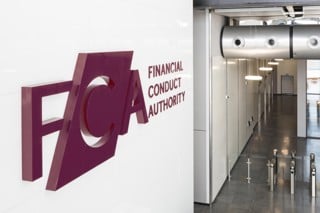By Debbie Kirlew
More cautious customers and vehicles kept for longer appear to have stimulated at least one area of the motor industry.
According to feedback from a range of warranty companies, they have all experienced a fairly phenomenal growth rate.
The rationale can be taken further: with new and used sales squeezed, the pressure to boost revenue from additional streams such as extended warranties has increased and dealerships’ staff seem to have delivered.
Talking to the warranty companies, it is easy to believe
the green shoots of recovery are flourishing:
Extended warranty sales at Allianz Global Assistance up by 15% in 2012 over 2011 while claims have remained relatively stable
Warranty sales at RAC Warranty have risen every year since the credit crunch and there are no signs of that trend abating
With a 34% increase in revenue from 2011 to 2012, and an increase of more than 60% in the amount of warranties sold, Warrantywise has also performed well. Inevitably, this has resulted in an increase in the number of claims received – around 40% year-on-year from 2010
A vigorous renewals scheme in 2012 resulted in renewals more than doubling for MB&G, which has now launched a sales drive to win more business from the franchised sector in a bid to grow its franchise representation to 25% from its current 20%
Motorway Direct, which operates the AA Warranty and Car Protect brands, predicts 15%-20% growth this year and has launched a recruitment process to accommodate its expected expansion plans.
According to Tim Heavisides, CEO of Car Care Plan, customers’ perceptions have changed and warranties are no longer viewed as a ‘nice to have’ but a ‘must-have’ and increased features of approved used car programmes have helped to bring this about.
He said: “Buyers want the new car experience whether they’re buying new or pre-owned.
"We’re also seeing an increase in the number of extended warranty periods, beyond those provided with a car purchase, so dealers are clearly in the mindset of offering an ownership proposition and selling warranty cover.
"Warranty is a product that almost all customers understand, so buyers are comfortable with adding it into the deal.”
The question is whether this additional activity is putting more pressure on aftersales departments and, in particular, the service advisers who are inevitably the ones at the sharp end, often manoeuvring their way between the customer and the warranty company.
Mercedes-Benz of Eastbourne service manager Garry Willis said it’s not usually the question of the claim that can determine the ‘hassle’ factor but the company providing the warranty.
Like most typical franchised dealers, the retailer, part of Lookers, handles three types of warranty claims: the manufacturer’s standard new car warranty; the approved used warranty; and products which have been purchased independently by the consumer or those that have come with vehicles sold
outside the used car programme by non-franchised used car sites.
Willis is happy dealing with both the manufacturer’s warranty and the approved used extended warranty provider and the team enjoys a wide range of freedom authorising the majority of work under the manufacturer’s warranty and up to £800 for the approved used warranty.
When it comes to the products consumers have purchased themselves, increasingly on the internet, it can be a very different story.
Willis said: “They are chalk and cheese as far as components covered. What appears to be a comprehensive level of cover on such products, particularly those purchased online, is not as extensive as it first appears.
Sometimes the wording can suggest or give the impression certain components are covered, but if it’s not listed by name, the companies generally won’t pay out.
“There can be other problems too.
For example, the warranty company may not cover the full cost of the labour rate so the customer has to pay the shortfall or they refuse to pay out for the genuine part and will only give the go-ahead for a reconditioned part from an independent so the customer will often have to fork out again to meet the cost of the manufacturer’s part.”

















Login to comment
Comments
No comments have been made yet.